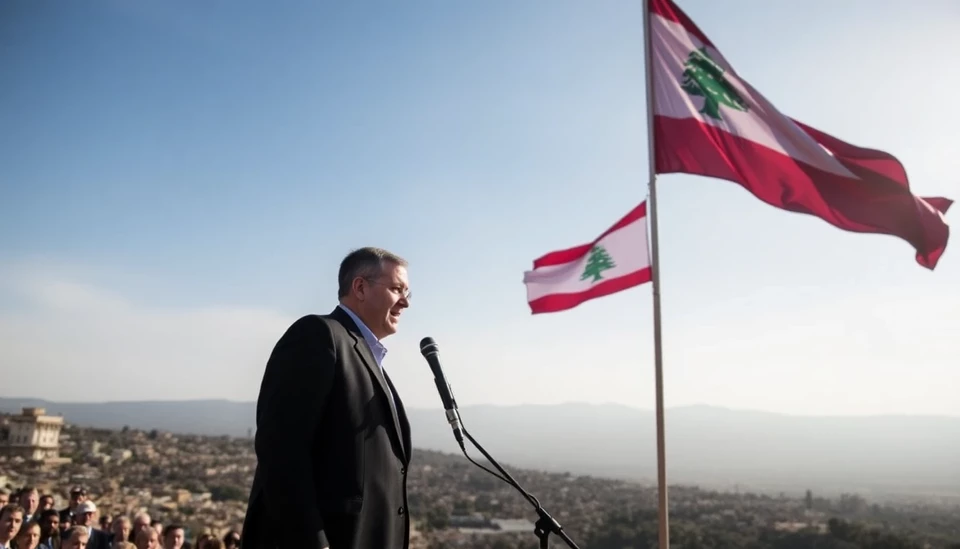
In the wake of escalating tensions and recent military confrontations between Israel and Hezbollah, Lebanon stands on the brink of significant political change as it gears up for presidential elections. This critical event is poised to take place in a turbulent environment shaped by the ongoing conflict which has exacerbated political divisions and economic instability within the country.
The elections are expected to unfold against a backdrop of heightened security concerns, primarily due to the consequences of the Israel-Hezbollah war. Reports indicate that the fighting, which has already resulted in numerous casualties, has led to many citizens feeling uncertain about the future of their nation’s leadership, and by extension, its stability.
Lebanese citizens have shown an increasing desire for change, seeking a leader who can unite the fragmented political landscape and guide Lebanon through these challenging times. The presidential candidates are being closely scrutinized, with voters interested in their stances on social reforms, economic recovery, and foreign relations—particularly with neighboring Israel and Syria.
It is widely acknowledged that the outcome of this election could pivot on the candidates' ability to address the profound crises facing Lebanon. The country has been grappling with a staggering financial collapse, rampant inflation, and a lack of basic services. These issues have further fueled public discontent, leading many to believe that the elections are a pivotal moment for reinvigorating Lebanon’s political institutions.
Furthermore, the recent conflict has stirred up longstanding sectarian tensions within Lebanon, making the task of selecting a unifying figure even more daunting. Historical grievances and factional alliances will play a crucial role in shaping voters' decisions, indicating that the upcoming elections will not only reflect current realities but also the complex political history of the region.
As the date of the elections approaches, discussions around the electoral process and the integrity of the elections are gaining traction. Observers express concern regarding the influence of external powers and the potential for interference, particularly given the strategic positioning of Lebanon in the geopolitical landscape of the Middle East.
With the stakes exceedingly high, it is imperative for the Lebanese electorate to choose a leader with the vision and capability to guide them through this turbulent period. Political analysts advocate for a commitment to democracy that truly represents the will of the people, emphasizing the need for reforms in a system that has long been viewed as corrupt and ineffective.
As the situation develops, the international community is closely watching Lebanon’s journey towards rebuilding its political framework, fostering hope that a successful election could herald a new chapter for the nation.
For many Lebanese citizens, the upcoming elections represent a glimmer of hope amid the darkness of recent conflicts, a chance to redefine their path and reclaim a sense of stability in a country rich in history and cultural depth.
In conclusion, the upcoming presidential elections in Lebanon are more than just a political event; they symbolize the resilience of a nation determined to navigate through adversity and strive for a brighter future. The eyes of the world will undoubtedly be on Lebanon, reflecting the importance of these elections in shaping not only Lebanon’s destiny but also the broader dynamics of the Middle East.
#LebanonElections #IsraelHezbollahConflict #MiddleEastPolitics #LebanonPresidency #PoliticalChange
Author: Laura Mitchell




